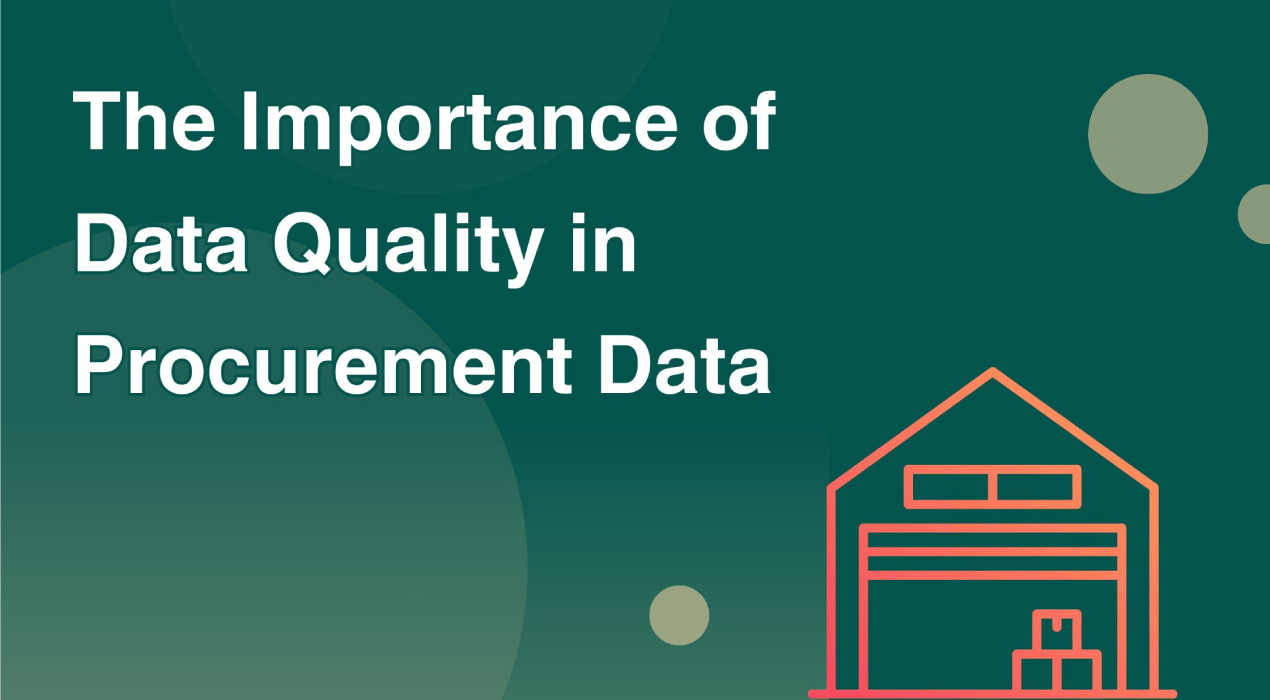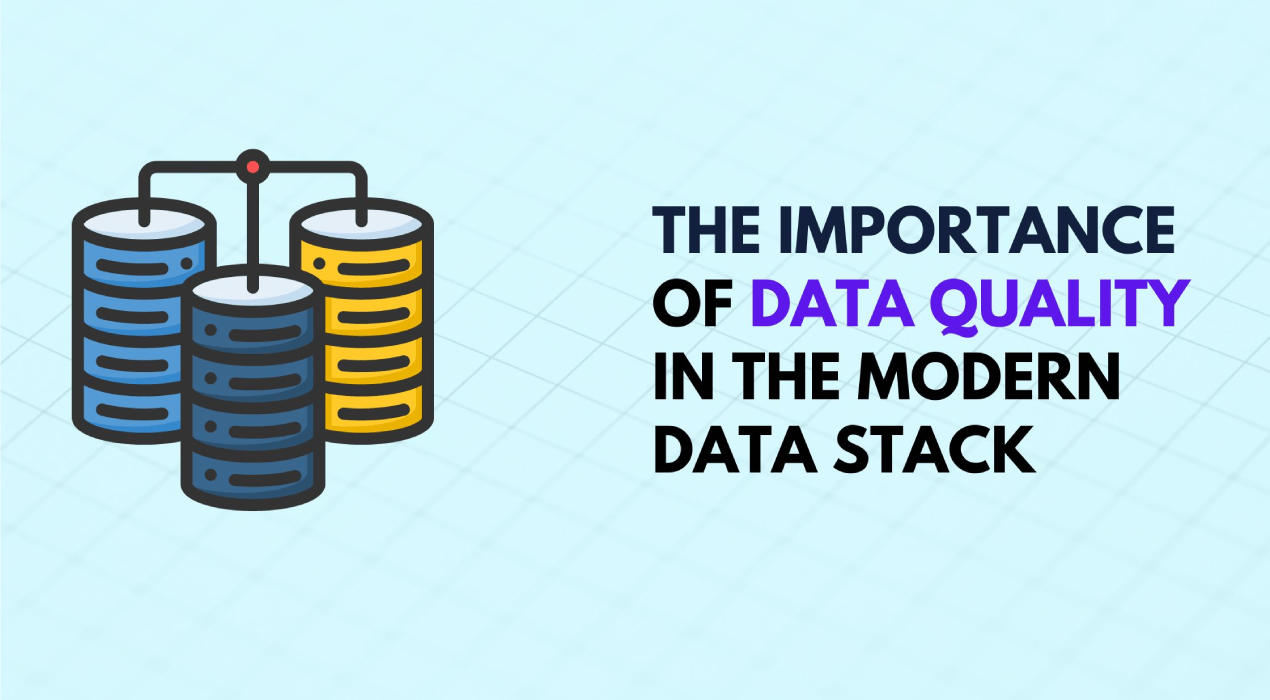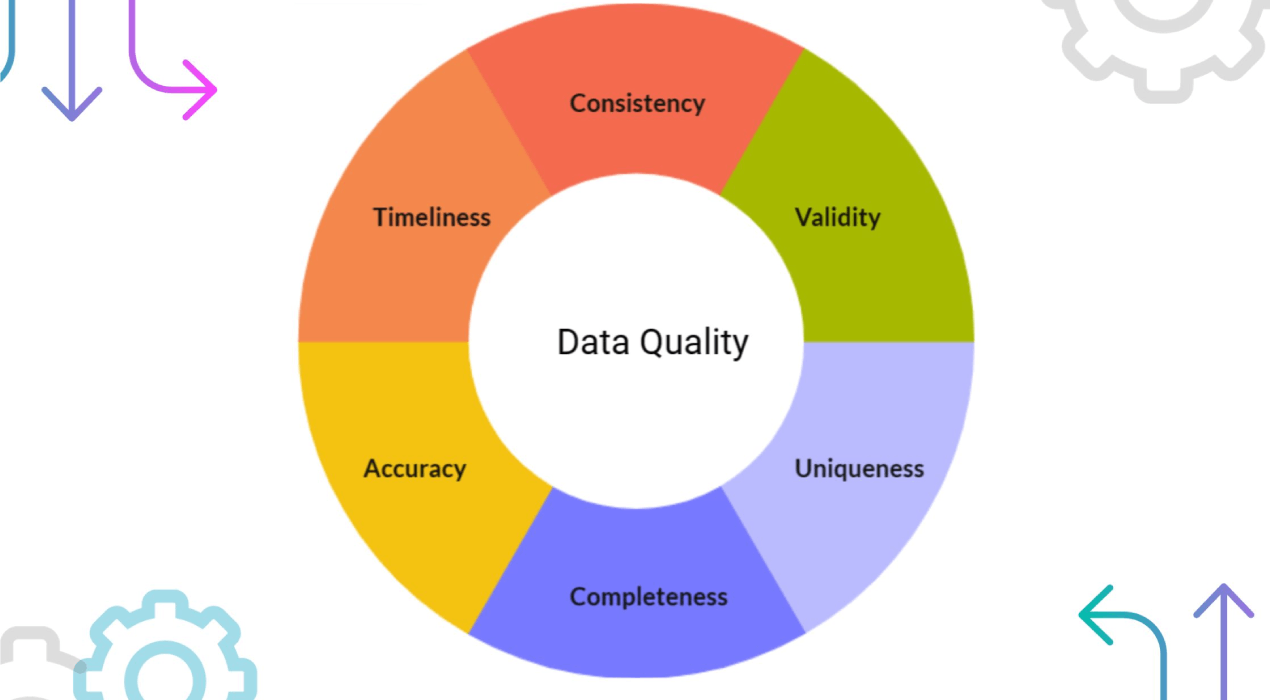
Experience the full features of the platform and discover the benefits it can bring to your organisation.
by submitting this form you agree to our privacy policy.
Experience the full features of the platform and discover the benefits it can bring to your organisation.
by submitting this form you agree to our privacy policy.

At its core, data quality pertains to the accuracy, timeliness, completeness, relevance, and consistency of information [1]. In the context of procurement, it's about having reliable information on vendors, prices, lead times, contract terms, and more. It's not merely about having data but ensuring that the data is actionable, reliable, and devoid of inaccuracies.
01
Cost Savings:
Accurate data can help businesses identify cost-saving opportunities, negotiate better terms, and reduce the risk of overspending. Without clear visibility into spend data, companies might miss volume discounts, or continue to purchase from a high-cost supplier unknowingly.
02
Efficiency in Operations:
Reliable data streamlines operations. For instance, accurate lead times ensure inventory is ordered and received when needed, preventing stockouts or excess inventory holding costs.
03
Risk Mitigation:
Inaccurate vendor data might lead to compliance issues, especially in sectors with stringent regulations. Knowing your suppliers, their compliance statuses, and the origin of goods is crucial to reducing supply chain risks.
04
Strategic Decision Making:
High-quality procurement data aids in making strategic sourcing decisions, such as identifying alternate suppliers, diversifying the supplier base, or making long-term procurement commitments.
05
Supplier Relationship Management:
Accurate vendor performance data can help businesses identify top-performing suppliers and those that might need performance interventions or renegotiations.
06
Innovation:
High-quality data can lead to insights that drive innovation in procurement strategies, such as new ways to bundle purchases or alternate sourcing strategies.
01
Lost Opportunities:
Without accurate spending data, businesses might miss out on bulk purchase discounts or the chance to consolidate purchases and reduce costs.
02
Operational Delays:
Inaccurate lead time or delivery data can disrupt operations, leading to unexpected stockouts or overstock situations.
03
Reputational Damage:
Ordering from non-compliant or unethical suppliers due to poor data can tarnish a company's reputation.
04
Financial Repercussions:
Over-reliance on a single supplier or not having visibility into market price fluctuations can result in financial setbacks.
Given the importance of data quality in procurement, how can businesses ensure they're working with the best possible data?
01
Regular Data Audits:
Periodic checks of procurement data can help identify inconsistencies, outdated information, or errors that need correction.
02
Implement Data Governance:
Data governance frameworks ensure standardized data collection, storage, and retrieval processes, reducing the risk of inconsistencies.
03
Invest in Technology:
Modern procurement software often comes with data cleansing and validation features, ensuring that the data entered is of high quality.
04
Supplier Collaboration:
Regularly engage with suppliers to validate and update data, ensuring that businesses have the latest and most accurate information.
05
Training & Development:
Equipping procurement professionals with the skills and knowledge to recognize and address data quality issues is crucial.
06
Feedback Mechanisms:
Encouraging feedback from internal stakeholders can help identify data issues that might have been overlooked.
Procurement, often seen as a tactical function, has evolved into a strategic cornerstone for businesses. As with any strategic function, the quality of information guiding decisions is paramount. High-quality procurement data not only ensures day-to-day operations run smoothly but also paves the way for innovations, cost savings, and competitive advantages.
In an era where data is the lifeblood of decision-making, businesses cannot afford to overlook the quality of their procurement data. Investing in data quality today can result in dividends of efficiency, savings, and growth tomorrow.
01
Wang, R. Y., & Strong, D. M. (1996). Beyond accuracy: What data quality means to data consumers. Journal of Management Information Systems, 12(4), 5-33.
02
Christopher, M., & Peck, H. (2004). Building the resilient supply chain. The International Journal of Logistics Management, 15(2), 1-14.
03
Weill, P., & Ross, J. W. (2004). IT governance: How top performers manage IT decision rights for superior results. Harvard Business Press.
In the realm of business, procurement plays a pivotal role. It oversees the sourcing of goods, services, and works from an external source, ensuring businesses acquire necessary inputs efficiently and effectively. At the heart of successful procurement lies one critical element: high-quality data. As the age-old saying goes, "Garbage in, garbage out." Poor procurement data can lead to inefficiencies, cost overruns, and lost opportunities. This article underscores the importance of data quality in procurement and offers insights for businesses aiming to optimize their procurement strategies.
Full setup within 24 hours.
Experience the full features of the platform and discover the benefits it can bring to your organisation


